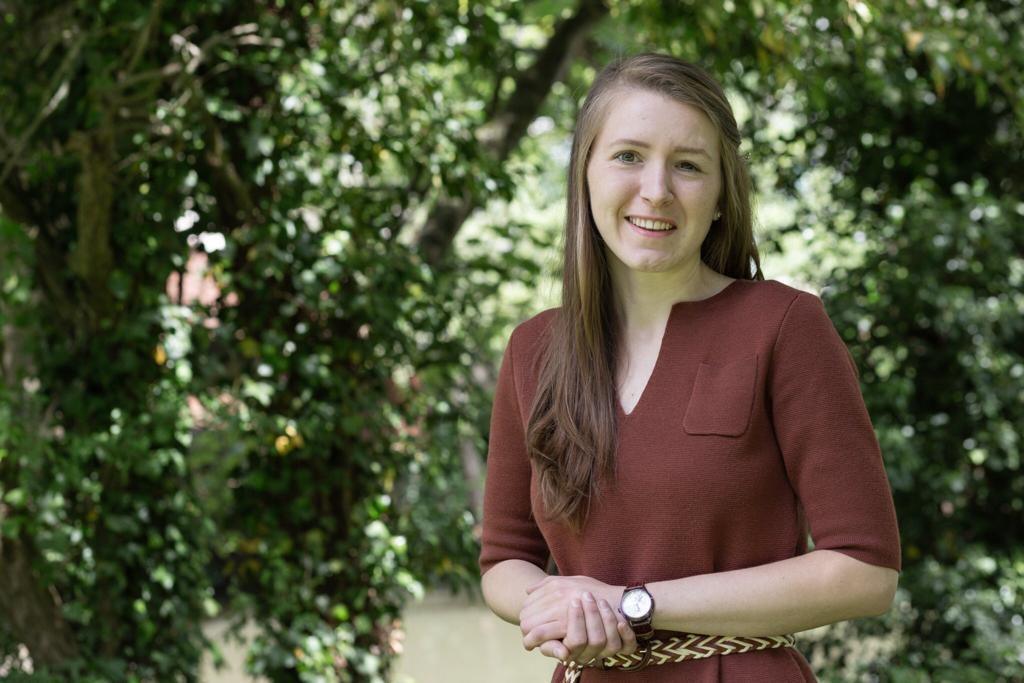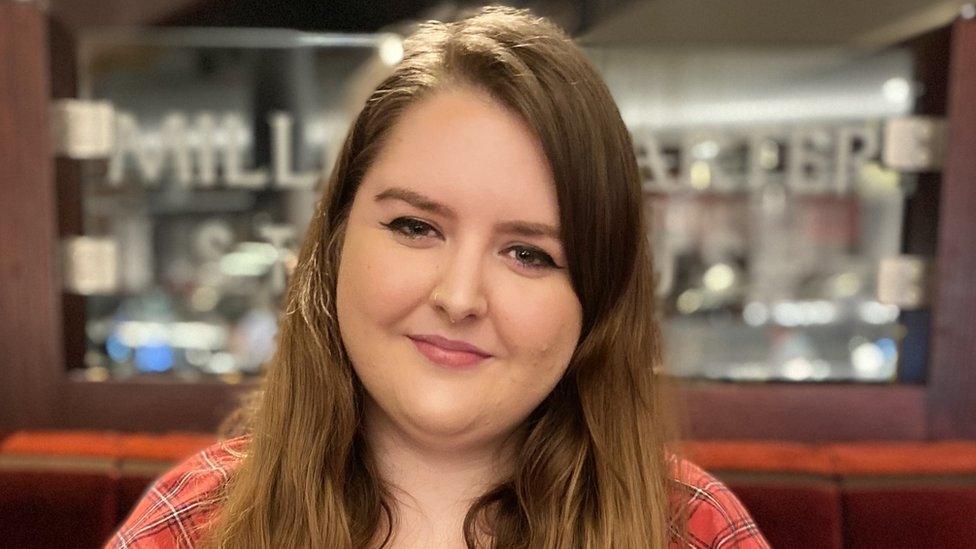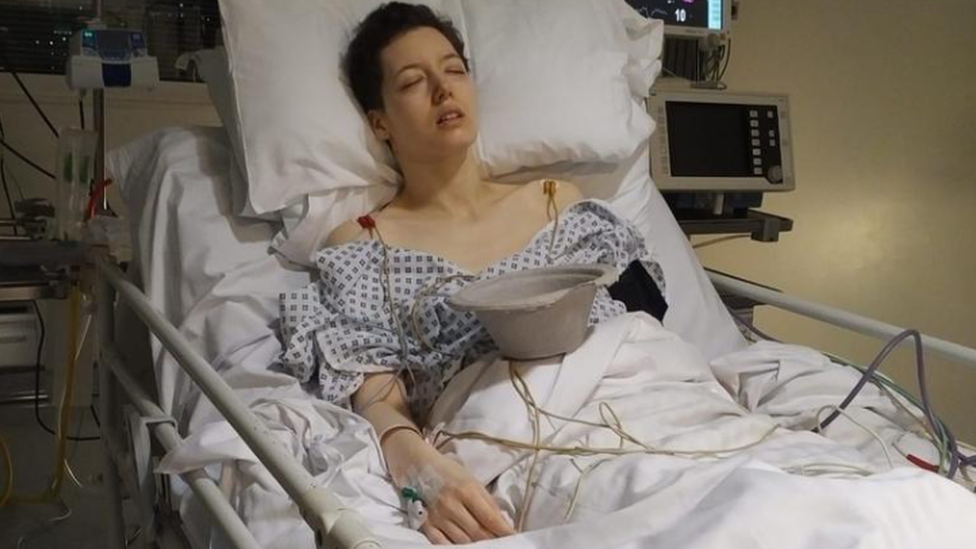Woman with ME 'immensely proud' to be working again
- Published

Saskia James said finding an employer who supported her needs has helped her look "to the future"
A woman has said she is "immensely proud" to be working again after a long struggle with a chronic illness.
Saskia James, 28, from Chippenham, has myalgic encephalomyelitis (ME), also known as chronic fatigue syndrome, a long-term debilitating condition.
Ms James said: "I never let it define me, slow me down or dictate what I could or couldn't do, but in hindsight that was probably a mistake."
She wants to help others by telling her story for ME Awareness Week, 9-15 May.
Ms James told BBC Radio Wiltshire: "I started having seizures when I was 14 and then had hundreds more."
She said the seizures happened "through all my exams and lots of special occasions, including birthdays, my graduation, in restaurants and church services".
At one point Ms James's symptoms were so severe she had to stop working and move back in with her parents.
"I struggled with sensory overload, so couldn't bear sound, couldn't bear light and just had to put a blindfold on and go to bed," she added.
She said she feared she might never recover.
"Everyone says get up, get on with it, power on through, so I did. I didn't stop and I think that was my mistake."
However, eventually her "slow" recovery began and she said even her worst days now are "a hundred times better than my best days then".

The ME Association said as many as 265,000 people in the UK are living with ME.
Symptoms can include extreme exhaustion, sensory overload, problems with memory and concentration and headaches.

Fleetwood Mac star Stevie Nicks has often spoken about her struggles with chronic fatigue
For a long time, the existence of CFS/ME was widely dismissed and labelled unkindly as "yuppie flu".
That opinion has largely been reversed in the past 20 years.

Ms James said: "My illness has changed me, but in some ways it's been positive."
"I'm more grateful for the small, simple things, more empathetic with those who don't find life easy, and more careful with my time and energy", she added.
She is also keen to highlight how important it is for people to be aware of the early signs of ME.
"Having people understand that it's a very serious medical condition is important."
"I had mild ME all through university but it was only once I was bedbound that I thought, let's do something about this."
Ms James said the importance of finding an employer who supported her needs has helped her look "to the future".
"They knew I would only be able to work part-time and would probably need more time off than others, but I couldn't have asked for a more supportive company."
Ms James has also been made an 'inclusion champion' by her employers Good Energy.

Follow BBC West on Facebook, external, Twitter, external and Instagram, external. Send your story ideas to: bristol@bbc.co.uk , external
Related topics
- Published25 September 2021

- Published3 March 2022

- Published19 March 2022

- Published29 October 2021
